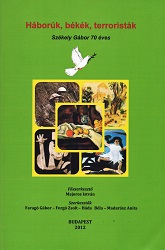
We kindly inform you that, as long as the subject affiliation of our 300.000+ articles is in progress, you might get unsufficient or no results on your third level or second level search. In this case, please broaden your search criteria.

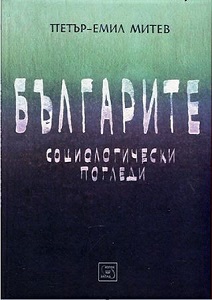
The book concerns the fundamental questions set by the founder of Bulgarian sociology Ivan Hadjiiski: Where are we coming from? What have we gone through? How far have we reached? Where are we going? Sociology is a science in which the person puts his imagination and heuristic potential. Sociology is a craft, in the practice of which the outcome depends on the mastery of the techniques and methodologies, the correct observance of rules and procedures. Sociology is a business that requires certain resources and also can reproduce or increase them. Sociology, however, is something else; it is not only a knowledge of society, but it is a public activity. It loses its meaning beyond the public realization or changes it if this realization does not correspond to the scientific credibility.
More...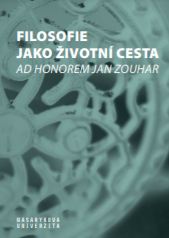
The text introduces Jan Zouhar as an important representative of contemporary Czech philosophy. It is an attempt to cover the breadth of his philosophical thinking, which extends from the historiography of Czech philosophy to some remarkable overlaps. For instance, we can mention the position of philosophy in the context of our spiritual culture, the place and role of tradition at present, and a reflection on the role that philosophy plays in human life.
More...
Unlike Martin Heidegger, who was always critical of Plato’s role in the history of philosophy, and Jan Patočka, who was more charitable but still had serious misgivings about Plato, Edmund Husserl saw Plato truly positively. However, his view resulted from the fact that he had simplified Plato’s theory substantially and adapted it to his own view of philosophy. According to Husserl, Plato was an inspirational figure as a founder of philosophical ‘theory of science’, and because he sought abstract knowledge of the Forms, he could serve as a useful contrast to the one-sided philosophy of modern empiricism. This paper attempts to present Husserl’s position in a greater detail and assess it.
More...
The Study Prometheus, for example loosely follows up the central theme of Hans Blumenberg’s theory of myth and mythology, the character of Prometheus and Promethean conceptions in scientific as well as imaginative literature (poetry and drama). The aim is not an elaborate reflection of all the variations on Promethean themes that were summarized in Blumenberg’s epochal book Work on Myth (1979). The author rather selects some themes from the works on the myth about Prometheus in Classical Greek literature (Hesiod, Aeschylus) and, at the turn of modernism, in German movement Sturm und Drang (Goethe). Most attention is paid to a fictional figure known as actio per distans (action at distance, with keeping a distance) and its variations from the distance between people and gods through the distance between people to the distance of an ageing poet from spirit of the age (Zeitgeist), to which he no longer belongs.
More...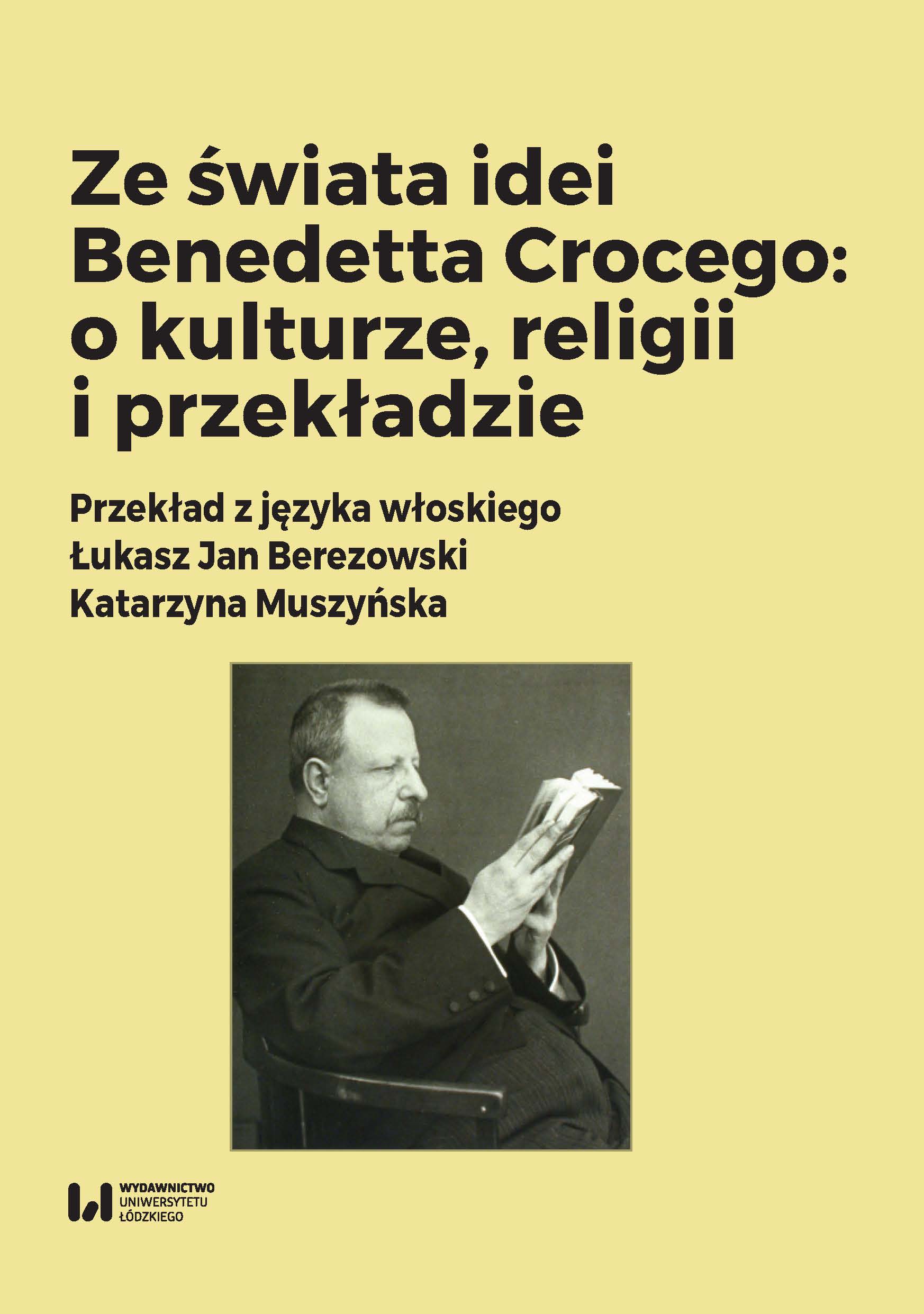
The original versions were primarily issued in "La Critica. Rivista di Letteratura, Storia e Filosofia", a journal edited by Benedetto Croce in the years 1903-1944. The presented work is accompanied by a historical and philological commentary of the editor as well as a list of printed references related to Croce (both source texts and critical editions available for Polish language).
More...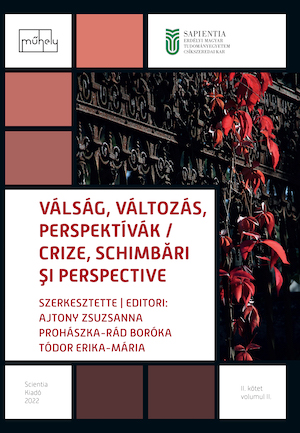
For Bergson, humour is a social phenomenon, and it needs artistic media to work well. Humour has a specific logic pointing beyond rationality. An epistemological investigation of laughter is theoretically required because the human ability of laughing – according to Bergson – is not a mere evolutionary reaction but a philosophical-psychological instinct, namely the ability for intuition of life. Within the confines of comedy, Bergson distinguishes several types of humour. He intends to emphasize that comedy stands on the boundary between life and art, and thus it trends to the universal. The philosophical relevance of humour reveals itself in being conducive to learning the technique of paying attention to life. The artist feels this human aim: the desire to contemplate ourselves free from external interests. Bergson calls this contemplation intuition. With this ability, one can turn to one’s own self. According to Bergson, this willingness proves the aesthetical ability of mankind, which has a subtle aim: to search for ourselves beyond our sense. In my paper, I would like to present the main elements of Bergson’s theory of laughter. Furthermore, I would like to emphasize that Bergson’s centenarian theory is still relevant.
More...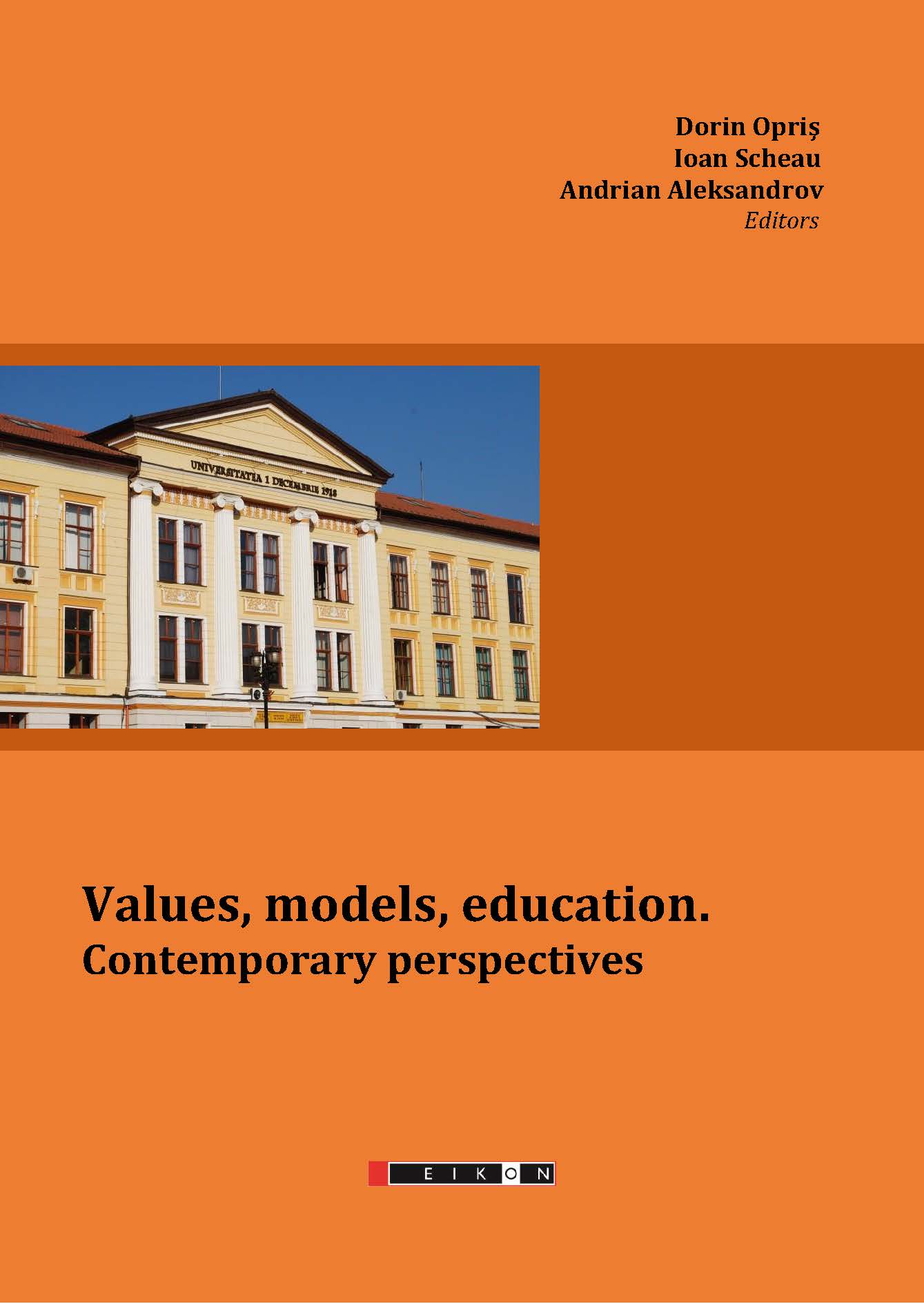
Life and death are fundamental antinomian concepts of human existence. Life as a process of becoming gives us the chance to realize ourselves personally and professionally. Man's attitude towards the value of life, in different historical periods, was different: for the ancient man, life is a complex process, which sums up contemplative and moral aspects, which would help him delimit truth from falsehood, value from non-value, etc.; for the medieval man, the moral life is in close correlation with the observance of church canons, intelligence being defined as the main instrument of morality; for the modern man, life holds supreme value; the postmodern man is confused and uncertain, discussing contradictory issues related to the meaning and value of life in the context of multiple overlapping crises (spiritual, moral, political, etc.). The issue of the value of human life becomes an object of study of bioethics starting from the second half of the XX century. Bioethics has always been focused on ethical-moral norms and values, human life representing the supreme moral value.
More...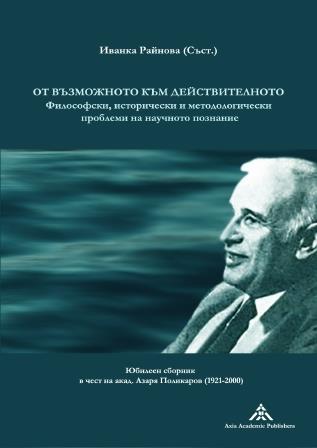
The main thesis of the author is that religion and science are the existential needs of the human spirit. But many see a contradiction between both. Where does it come from, and how can the original unity be restored? From the position of Hegel (Encyclopedia §1): “Philosophy and religion have as their subject the truth, and it is the truth in the highest sense of the word that God and He alone is truth." Further, both deal with the realm of the finite, nature and the human spirit, and their relationship to each other and to God as their truth. Science and religion have different fields of application, but they sort of illuminate the same objective reality from different points of view. Thus, they complement each other, they are not contradictory in themselves, but only in the scattered mind of the pragmatist, atheist thinkers, or the ignorance of the naive realist. And since man is created ontologically unified, he must find truth, peace and faith in the unity of his Self, which will lead him along the Path of Truth and Life. Religion and science can relate to each other as religious and secular, church and state, soul and body. The questions of creation and evolution are much more complex, and here are at least ten basic concepts between creationism and the materialist realism. More important is not whether there are developments and degrees of perfection in the world, but the question is: How has been constructed their determination and what are the causal links and interactions? All these problems are unsolvable without mastering and using the dialectical logic that began with Plato, but was created by Hegel and successfully interpreted and applied by Whitehead.
More...
Can scientific knowledge help us to save humanity? In her article, Batuleva shows that for Radoslav Tsanoff scientific knowledge is an undeniable value, an unconditional good, and yet we cannot fully trust it without a preliminary clarification of the question of how knowledge relates to other values, what is its effect on individual human experience on the one hand, and on the social existence on the other. Batuleva displays how Tsanoff's theory of values serves as a foundation and a link between the ethical, scientific and socio-political discourses. The original optics he has chosen, aims to inscribe moral imperatives in scientific, economic and political relations. This leads him to build a new scale of values, because without a "vital moral principle", any economic or political reform would lose its positive charge.
More...
Right from its beginning in 1660 the Royal Society of London embarked on a program of research in natural history. It inevitably included the Ottoman empire and was mostly organized by the first secretary of the Society, Henry Oldenburg, who took care of the business in those first formative years of the scientific academy. His correspondents were able to provide information from various parts of the Empire, but also from neighboring countries and regions. In this process a special role played the so-called questionnaires for natural history, which were designed by the Society’s Fellows and shaped not simply the research but also the correspondence itself.
More...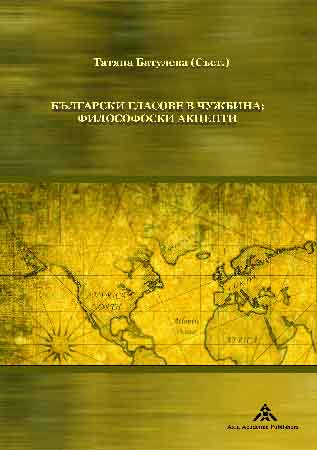
The work is centered around the views of Dr. Petar Beron – an "emblematic" person for the so called "Bulgarian Revival". He is the first Bulgarian encyclopedist and author of the first Bulgarian textbook for modern, secular education. Beron spent most of his life in Heidelberg, Munich, Paris, Berlin, London, Athens and Vienna. The text analyses his original system for explaining the world, set out in his greatest work, published in 8 volumes under the general title "Panepistemia". In this case, the object of analysis are the philosophical views of Beron, presented in the work "Slavic Philosophy", published in 1855 in German in Prague. His name is an emblem and a metaphor of the national culture and Bulgarian identity of this period.
More...
The article is devoted to the intense literary and public activities of the Bulgarian philosopher Yanko Yanev in Germany from the mid-1930s and until his death in 1944. Yanev was educated in Germany and defended a doctoral thesis under the supervision of Heinrich Rickert. He is the author of numerous important studies on Nietzsche, Hegel, Goethe, Hölderlin, Novalis, Schopenhauer, etc. The article is focused on Yanev’s metaphysi-cal inquiries, which brought him to perceive a kinship between the Balkans and Germany. The author discusses Yanev’s rejection of the claims regarding the Slavic nature of Balkan people, claims he considered a Russian insinuation. Also commented on is his view that the Balkans is a construct, in the creation of which this Bulgarian thinker invested his romantic attitudes and imagination.
More...
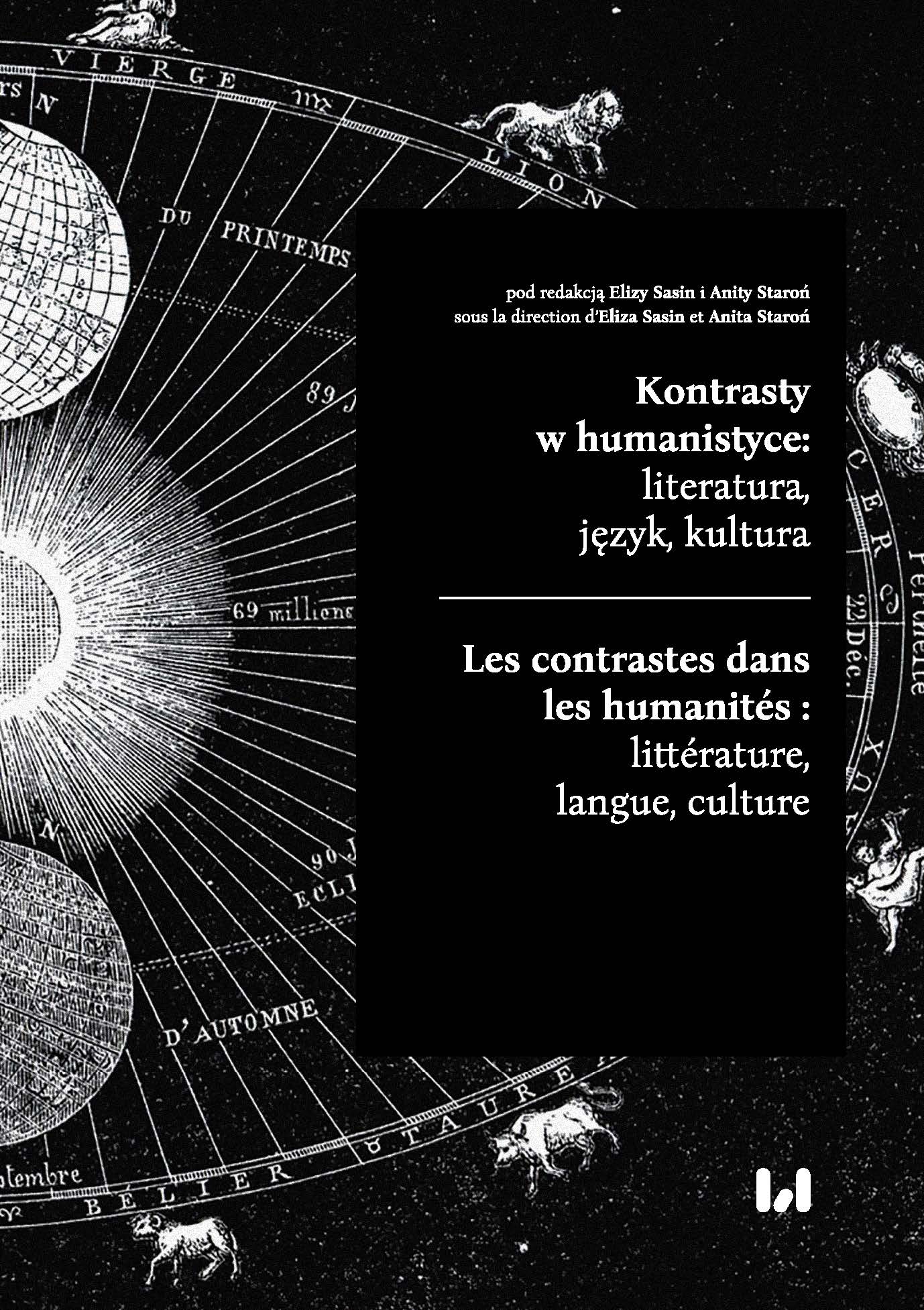
The present paper analyses the concept of the performativity of human language in the philosophical writings by Étienne Bonnot de Condillac and Jean-Jacques Rousseau. The first part of the text is devoted to the idea of langage d’action and its significance for Condillac‘s epistemology and theory of language; whereas the social and political functions of human speech, presented in the works of Jean Jacques Rousseau, are interpreted in the second part of the paper. Ultimately, it seems that for both Condillac and Rousseau human language is not just a mere thinking tool, but also a way of changing and improving our reality.
More...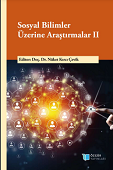
The problem of what philosophy is for or what its function is, is as important a problem as other major philosophical problems in the history of philosophy. Also, it differs positively from them in that it has some practical consequences. Traditionally, we see that philosophy is divided into two functions: philosophy as a theory of knowledge and philosophy as a social theory. These instrumentalist approaches argue that philosophy can have a direct impact on the world by carrying out missions such as grounding knowledge and bringing social change. On the other hand, there is an alternative approach that argues that philosophy should not be considered as a discipline that needs to be thought of in terms of its benefits it brings about. According to this essentialist approach, we should think of philosophy as a personal pursuit, a passion pursued in a way that is seperate from practical concerns. To see which of these approaches better reflects the nature of philosophy, it would be appropriate to look at the way it is currently applied and whether it can fulfill the traditional tasks assigned to it. This will show us that the essentialist approach is more preferable in the context of the problem of function than the instrumentalist approach.
More...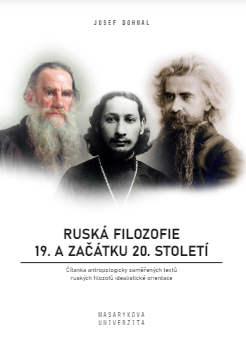
О. Конт установил т. наз. закон трех состояний (loi de trois états), согласно которому человечество переходит в своем развитии от теологического понимания мира к метафизическому, а от метафизического к позитивному, или научному. Философия Конта ныне уже потеряла кредит, но этот мнимый закон все еще, по-видимому, является основным философским убеждением широких кругов нашего общества. Между тем он представляет собой грубое заблуждение, потому что ни религиозная потребность духа и соответствующая ей область идей и чувств, ни метафизические запросы нашего разума и отвечающее на них умозрение нисколько не уничтожаются, даже ничего не теряют от пышно развивающейся наряду с ними положительной науки. И религия, и метафизическое мышление, и положительное знание отвечают основным духовным потребностям человека, и их развитие может вести только к их взаимному прояснению, отнюдь не уничтожению. Потребности эти являются всеобщими для всех людей и во все времена их существования и составляют духовное начало в человеке в противоположность животному. Изменчивы, таким образом, только способы удовлетворения этих потребностей, которые и развиваются в истории, но не самые потребности.
More...
Не только образованная Россия, но и весь культурный мир с напряженным интересом встретили посмертные художественные произведения Л. Н. Толстого. В них воскресает великий мастер, силою послушного резца высекающий живые образы. Какая свежесть и непосредственность в «Хаджи-Мурате» и даже в отдельных сценах дидактических произведений, какая потрясающая простота и сила в «Дьяволе», какой зной душевный в «Отец Сергий»! 1 При всей незаконченности и неотделанности этих произведений, в них мы имеем такие создания русской художественной литературы, которые могут ставиться в один уровень даже с ранним творчеством Л. Н. Толстого, а выше этого могут ли быть вообще поставлены художественные произведения?
More...
Не пора ли уж перестать писать о Пушкине и о всех тех, кто блистал и действовал на его московской тризне? Довольно!… Общество русское доказало свою «цивилизованную» зрелость, поставило Пушкину дешевый памятник, – по-европейски убирало его венками, по-европейски обедало, по-европейски говорило на обедах спичи. По обыкновению своему, интеллигенция наша ровно, по этому поводу, ничего не выдумала своеобразного. У подножия монумента великого русского творца не обнаружилось ни одного молодого и оригинального таланта ни в ораторском искусстве, ни в поэзии; говорили речи и стихи, и вообще, действовали тут все люди прежние, с давно определившимися взглядами и давно известные; блистали люди, которых молодость прошла при прежних условиях, более сходных с условиями, развившими самого Пушкина. Враждебно ли или сочувственно относятся все эти таланты к старому порядку и его остаткам – все равно; они все обязаны этому поруганному прошлому как впечатлениями своими (то есть содержанием своих творений), так и умственными силами своими, трудившимися над воспроизведением этого содержания, данного русскою жизнью… Нового ничего!… Ни изобретательности в форме чествования, ни какой бы то ни было ум поражающей свежей мысли, либо вовсе неслыханной, либо давно забытой и просящейся снова в жизнь. Многое из сказанного и написанного по этому поводу было где-то и когда-то, наверное, тоже сказано или написано теми же самыми лицами или иными, и гораздо лучше, и полнее. Один только человек, как слышно, выразился по поводу пушкинского празднества вполне оригинально: это – граф Л. Толстой. Печатали, будто он, отказываясь от участия в этом празднестве, сказал: «Это все одна комедия!» 1 Я не думаю, чтоб это было так. Отчего ж комедия? Вероятно, многие были искренни в своем желании почтить память Пушкина… И хотя мне очень нравится эта независимость графа Толстого, его капризное пренебрежение к современности нашей, но я не вижу нужды соглашаться с тем, что все это – притворство и комедия. В искренность я готов верить; я желал бы видеть только во всем этом больше национального цвета, побольше остроумия и глубины. Все это, быть может, и очень тепло; но тепло как пар, не замкнутый в какую-либо форму. Тепло, даже горячо, порывисто, но рассеялось скоро и не осталось ничего. Все надежды, все мечты, и мечты вовсе не картинные! Правду сказали в «Вестнике Европы» (я где-то это прочел), что и в том «смирении», которое хотят признать уже довольно давно отличительным признаком славизма, есть много своего рода самохвальства и гордости, ничем еще не оправданных…2 Довольно об этом. Больше всего сказанного и продекламированного на празднике меня заставила задуматься речь Ф. М. Достоевского. Положим, и в этой речи значительная часть мыслей не особенно нова и не принадлежит исключительно г. Достоевскому. О русском «смирении, терпении, любви» говорили многие, Тютчев пел об этих добродетелях наших в изящных стихах3 . Славянофилы прозой излагали то же самое.
More...
Противление признанию имен субстанциальными или эссенциальными формами личности нередко бывает движимо то сознательным, то полусознательным намерением отстоять свободу личности: эссенциальность имен, как думают, ведет за собой детерминизм и фатализм. Побуждение доброе, но некстати. Определенность внутреннего ритма, который утверждается за каждым именем, есть в такой же мере отрицание нравственной свободы, как и весь физический и психический склад, сообщаемый личности расою и народом, к которым она принадлежит. Несомненно, африканская кровь ускоряет душевные реакции и повышает яркость чувств, по крайней мере, свойственных данному лицу; но, как следует отсюда отрицание нравственной свободы? Пойдем далее; наследственный алкоголизм, как и наследственная музыкальность, сообщают личности определенные предрасположения и склонности. Однако, нравственная ценность личности ими ничуть не предопределяется; да не предопределяются и самые поступки, хотя заранее известно, что, каковы бы они ни оказались, при внимательном разборе их можно будет открыть в них и характерную наследственность данного лица. Преступный идиот и блаженный юродивец – эти два полюса нравственных оценок, в смысле наследственности, может быть, плоды одного родового дерева. Любой фактор, определяющий строение личности, ее склонности, ее возможности, ее внутренний темп и ритм, должен натолкнуться как раз на те же трудности, что и имя: тем, кто свободу духовного самоопределения смешивает с хаотическим произволом, всякая определенность личностного строения, что бы ни было ее причиною, оценивается как ущерб свободе и источник фатализма. Но не наше здесь дело обсуждать проблему свободы, и вполне довлеет, коль скоро показано, что имя – помеха свободе не более всякого другого личностного формфактора; с нас достаточно и доказательства, что не от имени падает свобода, если она вообще падает от определенности личностной структуры.
More...